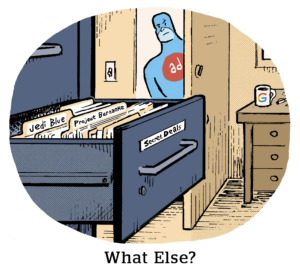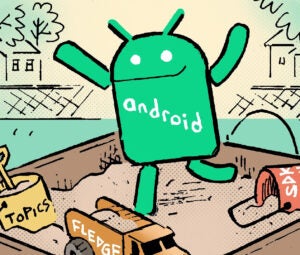Like all companies invested in the mobile ecosystem, Google is getting ready for iOS 14. But the company is playing its cards close to the vest.
As opposed to Facebook, which yodeled from the rooftops about the negative impact Apple’s IDFA changes will have on publisher monetization through Audience Network, Google quietly updated its AdMob Help Center last week with information on the steps developers need to take before iOS 14 rolls out.
So quietly, in fact, that even industry insiders hadn’t heard about it.
Going with the (consent) flow
Google’s plan appears to be: Lay low and go with the flow.
Whereas Facebook has said it will completely stop collecting IDFA, Google will use the AppTrackingTransparency (ATT) framework, Apple’s API for triggering the IDFA opt-in notice, to continue collecting the IDFA from users who choose to opt in.
Google is advising that developers install the latest version of the Google Mobile Ads SDK for iOS available for AdMob and Google Ad Manager. From there, developers can enable ATT and use Funding Choices, Google’s consent management platform, to manage ATT permissions and create consent dialogues.
Both the up-to-date SDK and the ATT framework are required for apps to continue using Google’s ad tools to monetize with personalized advertising on iOS 14.
The Google Mobile Ads SDK also supports conversion tracking using SKAdNetwork to attribute installs when the IDFA is not available.
But despite these measures, Google remains noncommittal. “At the moment, we are still trying to understand how Apple’s planned changes to iOS 14 will impact our partners and our users,” a Google spokesperson said in a statement shared with AdExchanger.
How Google uses IDFA
Google’s approach to iOS 14 is different from Facebook’s in large part because Google has its own operating system.
It makes sense for Google to keep its head down, gather IDFA tracking permissions where it can and wait for more spend to flow into the Android ecosystem.
Even Audience Network, for example, which Facebook has said will be “disproportionately” affected by the iOS 14 changes given its heavy dependence on app advertising and cross-app tracking, will still be able to operate on Android without disruption, at least for now.
But Google is far from immune when it comes to IDFA-related disruption.
“IDFA is just as important to Google as Android IDs are, which is a function of the type of phone a user buys,” said Tom Kershaw, CTO of Magnite. “That is very different than on the web.”
Google uses the IDFA to attribute app installs and tie app events to retargeting media across all of its products, including paid search and programmatic ad buys, said Hugo Loriot, a partner and managing director of You & Mr Jones-owned data agency fifty-five.
App publishers can run AdMob demand through their iOS apps, and AdX supports passing the IDFA or Google’s advertising ID (GAID) for Android in mobile app inventory bid requests. Mobile ad IDs, both IDFA and GAID, are also necessary to measure view-through conversions, especially on YouTube.
Without “a proper feedback loop,” Loriot said, performance campaigns and measurement will become more difficult, as will frequency capping.
Google is reportedly nudging developers away from certain targeting features for Google App Campaigns with the foreknowledge that they might become less useful without the IDFA.
One bid type, for example, called tROAS, or target return on ad spend, allows developers to bid more for more valuable users and less for less valuable ones. To know that these ads are working, Google needs to collect post-install data from already acquired users.
In August, Google reportedly started advising clients to start moving away from tROAS as a bid type.
Coming up
Although Google can’t control what Apple chooses to do with the IDFA, the fact that Google has a proprietary mobile ad ID of its own makes its situation unique to Facebook’s.
But there’s a big question mark hanging over the GAID’s future.
Some believe that Apple’s action will force Google to either make the GAID opt-in a la IDFA in iOS 14 or limit its use in some other way.
“Google is almost certain to follow suit, because they’ve been convergent with Apple, and not divergent, in their thinking about the identity space,” Kershaw said. “Google and Apple might yell at each other in the Privacy Sandbox to some extent, but Google is moving in the same direction.”
Yet Google’s current plan to keep collecting IDFA on iOS 14 using Apple’s AppTransparencyFramework could be a sign that Google won’t do anything extreme with its GAID, said Eric Seufert, a mobile strategist and editor of Mobile Dev Memo.
“My sense is that Google’s answer to IDFA deprecation on Android with the GAID identifier will be milquetoast,” he said. “And they don’t want to establish a strange dichotomy of not accessing the IDFA at all with their mobile properties on iOS – but then mostly or considerably preserving GAID access on Android.”
















